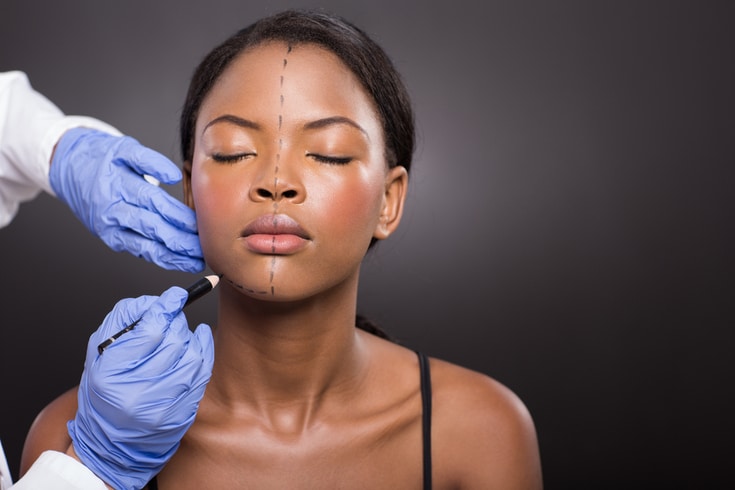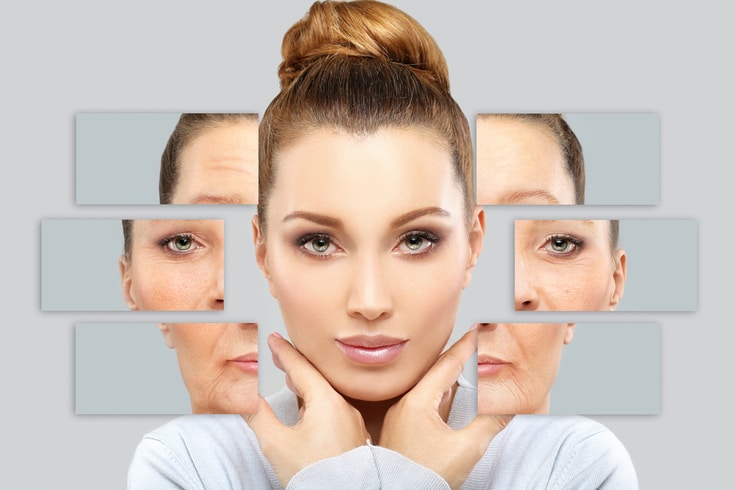Points to Note When Posting Patient Reviews and Before-and-After Comparison Images on Cosmetic Surgery Review Sites

“What kind of treatment do I need to achieve my ideal face?” “I want to know about the experiences of those who have undergone procedures.” “I want to know the reputation of the doctors and clinics I’m interested in.” For women considering cosmetic surgery, reviews of clinics and the details of surgeries posted on websites, including before and after photos, are of great interest.
Given the nature of cosmetic surgery, few people are likely to actively share their experiences on social media. For those who are considering undergoing cosmetic surgery, it is difficult to access sufficient information in advance.
While cosmetic surgery review sites that meet these needs are convenient, they have also started to raise legal issues. The question is whether it is illegal to post patient reviews and before-and-after comparison images.
Let’s discuss the legality and points to note regarding the above actions.
What is a Cosmetic Surgery Review Site?
In recent years, the number of women considering cosmetic surgery has been increasing. The global market for cosmetic surgery is expected to grow at an average annual rate of 7.8% between 2017 and 2023 (Heisei 29 – Reiwa 5). Against this backdrop of growing demand for cosmetic surgery, cosmetic surgery review sites are attracting attention.
Types of Cosmetic Surgery Review Sites
Specifically, there are the following types of cosmetic surgery review sites:
- Meily: This site is reassuring for beginners to cosmetic surgery or those without knowledge, as it features case studies from clinics and unique articles from the Meily editorial team.
- Tribue: A review app for cosmetic surgery and dermatology. It’s like a Tabelog for beauty clinics, allowing you to compare clinics and doctors based on price, treatment area, location, and satisfaction.
- Kannam Onni (Korea): A Korean cosmetic surgery review app. Not only can users post reviews, but they can also receive counseling from clinics using the chat feature.
Even if you understand that your case is different, comparing before and after photos and seeing significant changes can be a deciding factor in choosing a clinic. Also, being able to check reviews about the doctor’s response and the equipment used for treatment can be very helpful.
However, the act of patients posting reviews and photos on cosmetic surgery review sites may potentially violate the law. We will explain this in detail in the next chapter.
Is it Illegal to Publish Reviews and Pre/Post-Operative Images by Patients?

Does it Contradict the “Who” and “Advertisement” in the Medical Advertising Guidelines?
The Medical Practitioners’ Law regulates medical advertising, and the enforcement regulations and orders delegated to it specifically define the content of the regulations. In addition, the “New Medical Advertising Guidelines” and “Q&A on Medical Advertising Guidelines” notified in 2018 (Heisei 30) also display the content of medical advertising by the administration.
The target of the medical advertising-related laws and regulations is defined as follows in Article 6-5, Paragraph 1 of the Medical Practitioners’ Law.
No person shall, in relation to medical practice or dental practice or a hospital or clinic, make any display as a means of attracting those who receive medical care (hereinafter referred to simply as “advertisement” in this section), regardless of the method, such as documents, and shall not make false advertisements.
https://elaws.e-gov.go.jp/search/elawsSearch/elaws_search/lsg0500/detail?lawId=323AC0000000205_20181201_429AC0000000057&openerCode=1[ja]
Because it is stipulated as “no person”, the regulation is not limited to medical institutions. Cosmetic surgery review sites that post advertisements at the request of medical institutions are also subject to advertising regulations under the Medical Practitioners’ Law. Therefore, it may be necessary for the cosmetic surgery review site that posts advertisements for medical institutions to check the content of the advertisements to be posted.
Prohibitions in the Medical Advertising Guidelines
The Medical Advertising Guidelines stipulate the following prohibitions on advertising.
- False advertising
- Comparative superior advertising
- Exaggerated advertising
- Advertisements with content contrary to public order and morals
- Advertisements of testimonials based on the subjectivity or hearsay of patients, etc., regarding the content or effects of treatment, and advertisements of before and after photos of treatment, etc., that may mislead patients, etc.
If you leave a homepage that violates the guidelines as it is, you may receive a notification requesting improvement from the Ministry of Health, Labour and Welfare’s commissioned organization or public health center. If you ignore it and do not respond, administrative guidance or suspension orders will be issued step by step, and if it is deemed malicious, you may be subject to severe penalties such as imprisonment for up to six months, a fine of up to 300,000 yen, or revocation of the clinic’s establishment permit.
“Advertisements of testimonials based on the subjectivity or hearsay of patients, etc., regarding the content or effects of treatment” corresponds to patient reviews, and “Advertisements of before and after photos of treatment, etc., that may mislead patients, etc.” corresponds to before and after photos of patients’ surgery (so-called before and after photos).
Reviews naturally vary depending on the individual patient’s condition, and the content and effects of treatment naturally vary from person to person, so it can be said that there is a “risk of misunderstanding”.
In order to avoid violating such regulations, it is necessary that reviews and photos do not fall under “advertising” under the Medical Practitioners’ Law. So, do word-of-mouth reviews, before and after photos fall under “advertising” in the Medical Advertising Guidelines?
Definition of “Advertisement” in the Medical Advertising Guidelines
In the Medical Advertising Guidelines, “advertisement” is
- There is an intention to attract patients to consult, etc. (attractiveness)
- The name or name of the person providing medical or dental practice or the name of the hospital or clinic can be specified (specificity)
It is said to apply when both of these requirements are met.
Given the nature of review sites, it can be said that specificity is met. The issue is attractiveness, and the Medical Advertising Guidelines state the following about this.
As for the posting of testimonials on websites operated by individuals, personal pages of SNS, and so-called word-of-mouth sites operated by third parties, if there is no attractiveness due to the medical institution requesting the posting by providing convenience such as advertising costs, it does not fall under advertising.
https://www.mhlw.go.jp/content/000371812.pdf[ja]
The Presence or Absence of Financial Burden is Key
According to the Japanese Medical Advertising Guidelines, whether reviews and photos on cosmetic surgery review sites fall under advertisements in the Medical Advertising Guidelines depends on whether the medical institution is facilitating the posting by bearing the cost of advertising fees or similar expenses.
This point is judged based on the actual situation. In the case of general advertising, medical institutions pay advertising fees to the review sites and proceed to post. Since good reviews on the review site lead to attracting customers, there should be many medical institutions that desire to post due to its advertising effect.
On the other hand, there are cases where the review site itself pays money to the medical institution to enrich its content and requests for advertising postings.
What if the review site is bearing the cost?

Even if the review site is bearing the cost and posting requests from medical institutions, if the site is receiving any compensation from the medical institution for those costs, it is highly likely to be judged that, in reality, the review site is requesting the posting on top of the medical institution’s cost burden.
In this way, in the case of posting reviews on cosmetic surgery review sites, if there is a payment of money between the medical institution and the review site, the photos and reviews will be considered as advertisements under the medical advertising guidelines, and their posting will be a violation of the guidelines.
We have detailed explanations about the legal regulations on stealth marketing in the medical field in the following article.
https://monolith.law/corporate/medical-stealth-marketing-advertisement[ja]
Summary
With the boom in the cosmetic surgery market, the use of cosmetic surgery review sites is increasing. These sites collect reviews and photos from clinic patients, but such posts may violate the Medical Advertising Guidelines and potentially the Medical Practitioners’ Act (Japanese Medical Practitioners’ Act).
The Medical Advertising Guidelines prohibit “advertisements of testimonials based on the subjectivity or hearsay of patients, etc., regarding the content or effects of treatment, and advertisements of before-and-after photos of treatment, etc., that may mislead patients, etc.” Reviews and photos are likely to fall under these prohibited posts.
Whether photos and reviews constitute “advertising” under the Medical Practitioners’ Act is a point of contention. The key point is whether the “medical institution is facilitating the posting by bearing the cost of advertising fees, etc.”
Since it is presumed that many medical institutions are bearing the cost of advertising fees, etc., there is a high possibility that photos and reviews constitute advertising under the Medical Practitioners’ Act.
If you want to reduce the risk of being judged illegal, it is important to minimize the financial relationship between the money paid by the medical institution and the money received by the patient. If you are concerned about the legal risks associated with operating a cosmetic surgery review site, please consult with a lawyer who has extensive expertise in advance.
Category: Internet





















